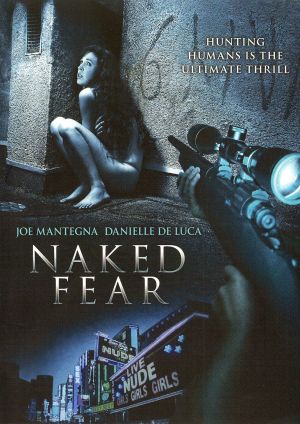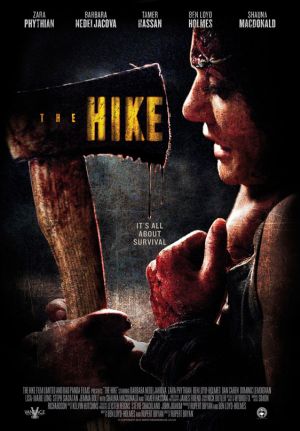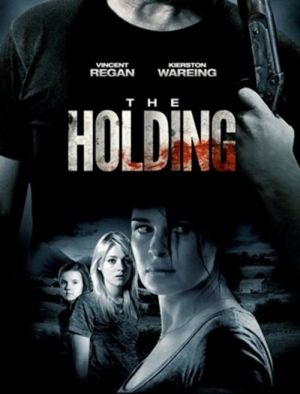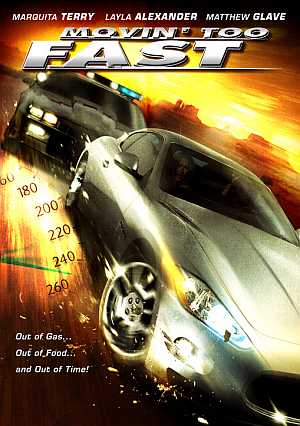★
“The film that could only be made in South America, where hair-care products are cheap…”
 Dear god. It has been a very, very long time since I have seen a film displaying such a degree of ineptness, in so many areas. About the only exception is the look of the film, which is nicely lush, allowing the makers to put together the trailer below. It’s a greater work of fiction than the movie itself, because the preview manages to give the impression that the feature its advertising does not entirely suck. In reality, trust me: it does. This is clear within the first 15 minutes, where we’ve had one burbling monologue of sub-Tarantinoesque proportions, two musical montages of absolutely no point, and the worst attempt by an actor to look drunk in cinematic history. I started looking up other reviews online at that point, and discovered, no, it wasn’t just me.
Dear god. It has been a very, very long time since I have seen a film displaying such a degree of ineptness, in so many areas. About the only exception is the look of the film, which is nicely lush, allowing the makers to put together the trailer below. It’s a greater work of fiction than the movie itself, because the preview manages to give the impression that the feature its advertising does not entirely suck. In reality, trust me: it does. This is clear within the first 15 minutes, where we’ve had one burbling monologue of sub-Tarantinoesque proportions, two musical montages of absolutely no point, and the worst attempt by an actor to look drunk in cinematic history. I started looking up other reviews online at that point, and discovered, no, it wasn’t just me.
The plot is basically Avatar in bikinis. No, wait: that sounds a lot better than this actually is. Inara (Danger) has been raised by her father, after her mother was killed during a jungle operation by mercenary group Asguard. Dad killed the perp responsible – the one with a taste for long, droning speeches rather than action – and his son still bears a grudge against Inara, 18 years later. After her father’s death, Inara is recruited to join Asguard and return to the scene, but on the way there an entirely unexplained (and unshown: trust me, if this film can skimp on any cost, it does) crash leaves Inara the sole survivor. She joins a tribe of local “Amazons” – quotes used advisedly, since they are basically Caucasians with unlimited expense accounts for Target’s bikini department. Discovering the true meaning of life, our heroine switches sides, and joins the natives for a battle against Asguard. This clocks in at a brisk one minute, 40 seconds, or rather shorter than the average WWE Divas match.
Lead actress Danger appears to be a star of fetish sites like RingDivas.com, which offer services such as filming of “custom wrestling matches,” and that may explain why there is little acting demanded of her. However, the rest of the cast are tasked to no greater extent, by a script consisting largely of scenes that begin nowhere, end nowhere and, in between, serve no purpose in developing story or characters. Now, every film might have a couple of these: here, they crop up with such regularity, it begins to feel that Desmarattes is playing some kind of surreal joke, making a native warrioress version of My Dinner With Andre. Sadly, I think it’s pure incompetence. Any time the film has a choice, and can go either towards being interesting or boring, it’s always the latter. And if you’re watching in the hope of some nudity or action, forget it: this fails to deliver anything of note in either category. I don’t use the phrase “worst movie ever” lightly, and have seen plenty of truly terrible offerings, but this certainly deserves to be in the conversation, for both its breadth and depth of awfulness.
Dir: Patrick Desmarattes
Star: Cali Danger and other people. Names redacted: they’ll thank me later.





 The concept of “hunting humans” has been popular cinematic fodder for over 80 years, since The Most Dangerous Game came out in 1932. This isn’t the first specifically to target women – the Roger Corman produced The Woman Hunt did so in the seventies – but the prey in that needed male help to accomplish much, which isn’t the case here. The heroine is Diana Kelper (DeLuca), whose new dance job turns out not to be quite as expected – she’s more or less coerced into working as a stripper, unable to leave until she pays off the debts to the man who brought her in. The only way to do that is to turn tricks on the side, but her first client is Colin Mandel (Garfield), who is interested in a longer-term relationship. Specifically, one where he can take his female victims into the remote wilderness, where they wake up, unclothed and eventually on the wrong end of a crossbow bolt or bullet. However, with Kelper, he may have bitten off more than he can chew.
The concept of “hunting humans” has been popular cinematic fodder for over 80 years, since The Most Dangerous Game came out in 1932. This isn’t the first specifically to target women – the Roger Corman produced The Woman Hunt did so in the seventies – but the prey in that needed male help to accomplish much, which isn’t the case here. The heroine is Diana Kelper (DeLuca), whose new dance job turns out not to be quite as expected – she’s more or less coerced into working as a stripper, unable to leave until she pays off the debts to the man who brought her in. The only way to do that is to turn tricks on the side, but her first client is Colin Mandel (Garfield), who is interested in a longer-term relationship. Specifically, one where he can take his female victims into the remote wilderness, where they wake up, unclothed and eventually on the wrong end of a crossbow bolt or bullet. However, with Kelper, he may have bitten off more than he can chew. Five young women head out into the country for a camping trip, led by Kate (Phythian), a former soldier who is stil traumatized by seeing her boyfriend killed in front of her while on a mission in the Middle East. She’s about the only member of the party who seems genuinely keen on the trip, and it’s not long before the others start to whine, demanding rest stops, and the hike is curtailed before the intended destination. At least the country is not entirely deserted, though the creepy East European guy and his two women isn’t exactly sociable. But at least there are the three nice guys, out for a spot of rock-climbing, led by Ethan (Loyd Holmes), so there’s always that. And if things end up getting dicey – say, if one of the women vanishes mysteriously, while out gathering firewood, the others can turn to Ethan and his chums for help. Right? Right?
Five young women head out into the country for a camping trip, led by Kate (Phythian), a former soldier who is stil traumatized by seeing her boyfriend killed in front of her while on a mission in the Middle East. She’s about the only member of the party who seems genuinely keen on the trip, and it’s not long before the others start to whine, demanding rest stops, and the hike is curtailed before the intended destination. At least the country is not entirely deserted, though the creepy East European guy and his two women isn’t exactly sociable. But at least there are the three nice guys, out for a spot of rock-climbing, led by Ethan (Loyd Holmes), so there’s always that. And if things end up getting dicey – say, if one of the women vanishes mysteriously, while out gathering firewood, the others can turn to Ethan and his chums for help. Right? Right? Cassie Naylor (Wareing) is struggling to keep her head above water on the farm she’s now running almost single-handed, eight months after her husband vanished. What the locals don’t know is that she buried him in a remote spot on the Derbyshire moors, with the help of part-time farmhand Cooper (Bradley), for reasons not initially clear. The arrival of a transient, Aden (Regan, looking not unlike a rougher version of Gerard Butler), seems like a godsend, and they agree he can work in exchange for food and lodgings. However, it’s not long before Aden’s less-desirable tendencies start to show through. While he’s fiercely loyal – dispatching anyone whom he perceives as a threat – he seems to regard Cassie and her two daughters as “his” family, and seems to know rather too much about them.
Cassie Naylor (Wareing) is struggling to keep her head above water on the farm she’s now running almost single-handed, eight months after her husband vanished. What the locals don’t know is that she buried him in a remote spot on the Derbyshire moors, with the help of part-time farmhand Cooper (Bradley), for reasons not initially clear. The arrival of a transient, Aden (Regan, looking not unlike a rougher version of Gerard Butler), seems like a godsend, and they agree he can work in exchange for food and lodgings. However, it’s not long before Aden’s less-desirable tendencies start to show through. While he’s fiercely loyal – dispatching anyone whom he perceives as a threat – he seems to regard Cassie and her two daughters as “his” family, and seems to know rather too much about them. Five mountaineers are exploring the remote Scottish highlands, when they stumble across an underground box containing a terrified, near-dead young girl who speaks no English. Two of the party are sent, by the most direct but not child-friendly route, back to civilization to get help, but it’s not long before they discover the parties who buried the girl are not too happy with her removal. For they are two kidnappers, Mr. Kidd (Harris, who also plays a psychotic killer in The Borgias) and Mr. McRae who are negotiating with her father’s emissary, Darko (Roden) to pay the ransom, not aware that Darko has hired some ex-soldiers to resolve the matter. Having lost the child, the pair set out to recapture her, and don’t care how many bodies are left in their wake.
Five mountaineers are exploring the remote Scottish highlands, when they stumble across an underground box containing a terrified, near-dead young girl who speaks no English. Two of the party are sent, by the most direct but not child-friendly route, back to civilization to get help, but it’s not long before they discover the parties who buried the girl are not too happy with her removal. For they are two kidnappers, Mr. Kidd (Harris, who also plays a psychotic killer in The Borgias) and Mr. McRae who are negotiating with her father’s emissary, Darko (Roden) to pay the ransom, not aware that Darko has hired some ex-soldiers to resolve the matter. Having lost the child, the pair set out to recapture her, and don’t care how many bodies are left in their wake. Obviously inspired by a certain raider of tombs, this has Yuan as Georgia, who was rescued from an orphanage, along with her sister (Koinuma) and trained in… well, raiding tombs. When their foster father vanishes while on an expedition seeking the secret of immortality, the two siblings head off to look for him, only to come under attack from a range of locals, natives and the local fauna. Meanwhile, Professor Ivy Chan (Shimada) links up with billionaire art-collector Michael Lui (Wong), and discovers that shady forces are after a relic possessed by Ivy, and that they need to follow the girls into the remote jungle.
Obviously inspired by a certain raider of tombs, this has Yuan as Georgia, who was rescued from an orphanage, along with her sister (Koinuma) and trained in… well, raiding tombs. When their foster father vanishes while on an expedition seeking the secret of immortality, the two siblings head off to look for him, only to come under attack from a range of locals, natives and the local fauna. Meanwhile, Professor Ivy Chan (Shimada) links up with billionaire art-collector Michael Lui (Wong), and discovers that shady forces are after a relic possessed by Ivy, and that they need to follow the girls into the remote jungle. This is a competently-made but ultimately forgettable film – it feels very much like a TVM, albeit for one of the slightly-more liberal channels. Hemingway plays Secret Service agent Lynn Delaney, who has to look after the Vice-President, when their place crashes in the Pacific. Of course, in the way things only happen in Hollywood movies, the island to which the struggle is a rebel outpost, and the VP is a former soldier, with more-than adequate combat skills of his own. Which extend to more than shooting people in the face, Dick Cheney please note. Meanwhile, there’s a lot of tension with female journalist Sharon Serrano (Bennett), who is also among the survivors; this includes tension of a sexual kind, if you know what I mean, and I think you do. Like I said: one of the slightly-more liberal channels. However, it’s nice that no big thing is made of this; you’re not whacked over the head with anyone’s sexual orientiation, as in D.E.B.S. [Curiously, even the nods in this direction are edited out from some releases]
This is a competently-made but ultimately forgettable film – it feels very much like a TVM, albeit for one of the slightly-more liberal channels. Hemingway plays Secret Service agent Lynn Delaney, who has to look after the Vice-President, when their place crashes in the Pacific. Of course, in the way things only happen in Hollywood movies, the island to which the struggle is a rebel outpost, and the VP is a former soldier, with more-than adequate combat skills of his own. Which extend to more than shooting people in the face, Dick Cheney please note. Meanwhile, there’s a lot of tension with female journalist Sharon Serrano (Bennett), who is also among the survivors; this includes tension of a sexual kind, if you know what I mean, and I think you do. Like I said: one of the slightly-more liberal channels. However, it’s nice that no big thing is made of this; you’re not whacked over the head with anyone’s sexual orientiation, as in D.E.B.S. [Curiously, even the nods in this direction are edited out from some releases] Nita Daniels (Wagner) and her three girlfriends take a horseback trip up the mountain, expecting to meet their husbands at the top. However, the trip becomes a nightmare, as four members of the ‘Aryan Survivalist Brigade’ are holed up there, and decide to take out the women and their alcoholic guide, Ding (Skerritt). Initially, Ding takes the fore, but when he is injured it’s up to Nita and her pals to fight back. This TVM struggles, largely because of the lack of justification for the white supremacists: the entire party they attack are about as Aryan as they come, so why, exactly, should they be targeted for elimination? It would have been far more plausible had the party been ethnically-mixed, or even their guide been black – or, heck, Jewish.
Nita Daniels (Wagner) and her three girlfriends take a horseback trip up the mountain, expecting to meet their husbands at the top. However, the trip becomes a nightmare, as four members of the ‘Aryan Survivalist Brigade’ are holed up there, and decide to take out the women and their alcoholic guide, Ding (Skerritt). Initially, Ding takes the fore, but when he is injured it’s up to Nita and her pals to fight back. This TVM struggles, largely because of the lack of justification for the white supremacists: the entire party they attack are about as Aryan as they come, so why, exactly, should they be targeted for elimination? It would have been far more plausible had the party been ethnically-mixed, or even their guide been black – or, heck, Jewish. Yes, while there may not be a lot new here, the combination is at least somewhat interesting, and it’s put together solidly enough. Two students, Nina (Alexander) and Melissa (Terry) are on a cross-country drive, when they get stopped for speeding. Melissa makes a pass at the cop, but it’s an encounter that goes badly wrong, and she ends up beating him up with his own night-stick. When the duo get back on the road however, they find themselves being pursued by a police-car, which clearly has very bad intentions: with gas running low and – inevitably – no cellphone service to be found, can they survive?
Yes, while there may not be a lot new here, the combination is at least somewhat interesting, and it’s put together solidly enough. Two students, Nina (Alexander) and Melissa (Terry) are on a cross-country drive, when they get stopped for speeding. Melissa makes a pass at the cop, but it’s an encounter that goes badly wrong, and she ends up beating him up with his own night-stick. When the duo get back on the road however, they find themselves being pursued by a police-car, which clearly has very bad intentions: with gas running low and – inevitably – no cellphone service to be found, can they survive? This appears to be aiming for a leg-up on The Descent bandwagon and its theme of “chicks vs. cave-dwelling monsters in a remote wilderness”; though there’s only one of each here, rather than it being a team sport. “Troubled young ranger” Danielle St. Clair (Vincent) is atop a remote tower, watching out for fires, but a careless use of dynamite unleashes an ancient Indian evil that’s been trapped in a cave for centuries. Fortunately, despite said centuries, the monster still knows how to disable satellite dishes and trash Jeeps, as well as ripping the heads off everyone in the area it meets – except for St. Clair, of course, whom it merely terrorizes. The inevitable native American (Schweig) gets wheeled on for one scene of indigestible exposition, trotting out the usual cliches about how we’ve lost touch with our inner child, or some such New Age guff. Not that the beast cares much, I was pleased to see.
This appears to be aiming for a leg-up on The Descent bandwagon and its theme of “chicks vs. cave-dwelling monsters in a remote wilderness”; though there’s only one of each here, rather than it being a team sport. “Troubled young ranger” Danielle St. Clair (Vincent) is atop a remote tower, watching out for fires, but a careless use of dynamite unleashes an ancient Indian evil that’s been trapped in a cave for centuries. Fortunately, despite said centuries, the monster still knows how to disable satellite dishes and trash Jeeps, as well as ripping the heads off everyone in the area it meets – except for St. Clair, of course, whom it merely terrorizes. The inevitable native American (Schweig) gets wheeled on for one scene of indigestible exposition, trotting out the usual cliches about how we’ve lost touch with our inner child, or some such New Age guff. Not that the beast cares much, I was pleased to see.